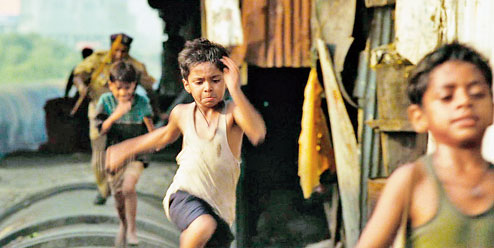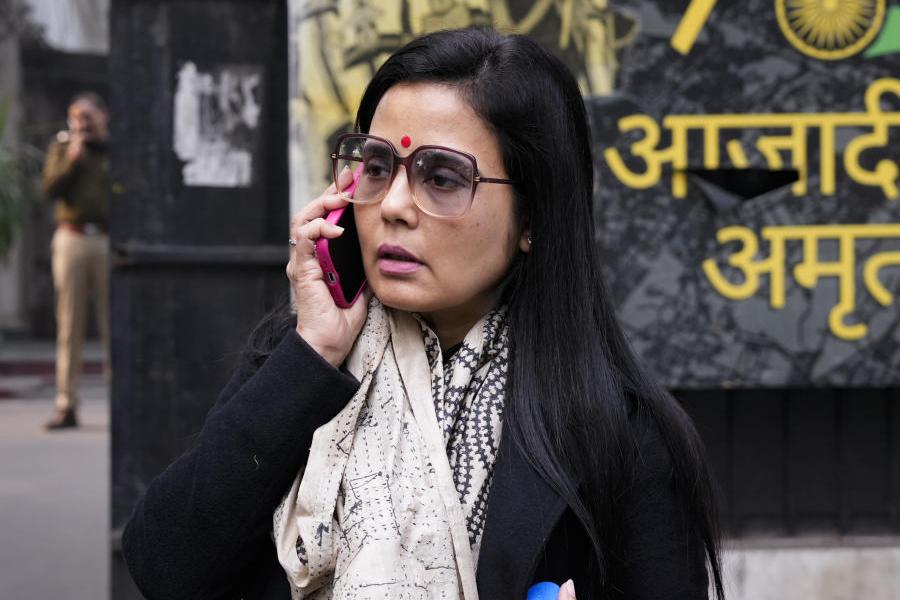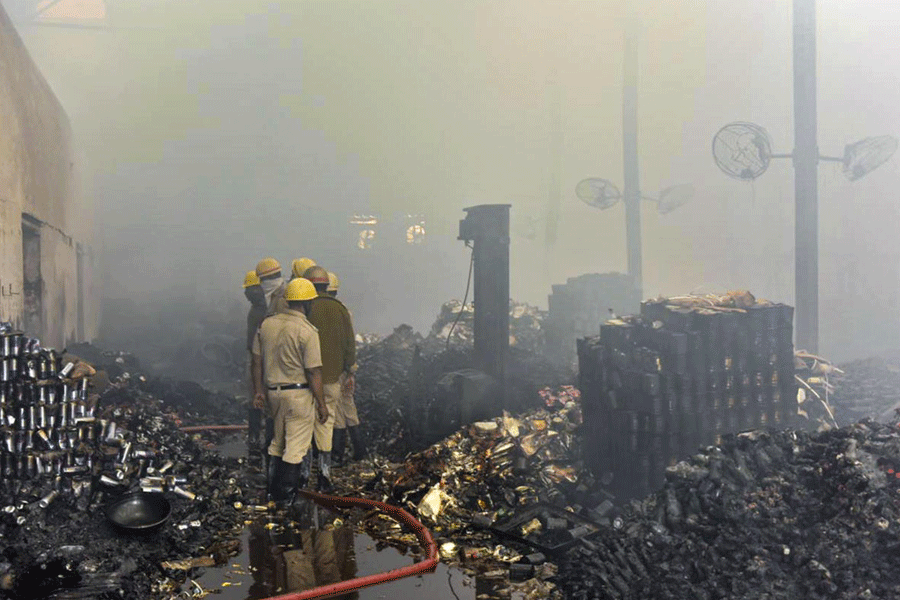 |
| Like in the movie Slumdog Millionaire where a gangster blinds children to push them into begging, drug lords in the Topsia slums are using kids to carry drugs to customers |
As the clock on the patchy wall strikes 11, Abid gets restless. It is a signal for him to step out of the realms of innocence and slip into the dangerous world of drug peddling.
In the Topsia-Tangra-Tiljala belt, Abid and several other children aged 10 and below are the hidden yet crucial cogs in the supply chain.
These children, many of them still unaware of the hazards associated with the job, are in the lowest rung of the hierarchy.
But they are the interface between the peddler and the addict — delivering tiny, rectangular paper pouches filled with varying quantities of contraband to a clientele that allegedly includes school and college students, poor rickshaw-wallahs and rich men in elegant sedans.
These children are the safest bet for their “masters” or “uncles” to avoid attracting police attention or hoodwink anti-narcotics detectives patrolling the streets.
Senior police officers of the narcotics wing looked surprised when Metro asked them if they knew about the young drugs peddlers.
The beat policemen are allegedly not that ignorant.
“Every day, several grams of drugs reach the addicts through these children,” says a policeman at Tiljala police station. “This has become rampant in the past year after we demolished theks (drugs dens). The peddlers are now using a mobile network of children,” he adds.
So the police know and yet there’s been no crackdown? “It is easier said than done. These children are smart and are trained to the T of their trade by their masters and parents. Catch one and try… they won’t open their mouths no matter what. Use mild persuasive techniques and the NGOs will take us to court for child abuse,” the cop says.
Every day, five-year-old Abid leaves his single-room home with a satchel containing books slung across his shoulder.
His shanty home at Mazdoor Basti abutting the Topsia canal is made of an assortment of materials — cow dung-reinforced mud, bamboo poles, tarpaulin sheets and roof tiles.
A minute’s walk takes him to a tutorial run by an NGO in a slightly bigger room with pictures of fruits, vegetables and freedom fighters on the wall. Here, 40-odd children from various slums in the area join Abid.
Abid’s teacher, an elderly woman, says he takes keen interest in his studies, especially in mathematics.
But an internal alarm bell reminds the boy every morning that it is time for him to slip into his other life: quite a perilous one but keeps his family from starving.
Abid does not work in one of the hundreds of sweatshops in the slums. His “courier service” fetches him much more than the regular jobs.
Once he is out of class, Abid rushes to a house in the neighbourhood, collects a clutch of paper pouches and heads for the bus stand (route No. 24) a few metres from the upscale Sunflower Garden off the Park Circus connector.
The clients know Abid and the rendezvous point and wait there for the pouches — rectangular and folded many times over. “Some buy directly from the ‘source’ inside the slums. But most of them wait near the bus stand for the delivery boys,” an NGO worker says.
Locals say the network is highly organised and has several layers of cover to avoid detection. “Frontmen of the drug peddlers hang around the bus stop for customers. If someone approaches, they take the money and run to their masters deep inside the slums. They collect the stuff and hand these to the delivery boys. When the boy or the client is new, the older guys follow the children to identify the buyer,” the NGO worker adds.
Tipping, called “service charge” to make it sound business-like, is customary. The impoverished kids get handsome tips from the buyer as well as the seller.
Residents of the area, community workers and NGOs revealed that more and more children were being pushed into this horrifying nexus over the past year. “Since they are so young, police do not suspect them and the drug lords are using them with impunity,” Abid’s teacher says.
Anwar Premi, who runs a de-addiction centre at Mominpur and whose NGO works in areas such as Kidderpore, Park Circus and Belgachhia, says the trend of hiring children as drugs couriers began a year ago.
“Before them, women were used to deliver drugs. But many of them were caught and the crackdown forced the peddlers to invent new ways. They turned to the poor children of the slums,” he says.
Metro meets Abid in the hut where he lives with his mother and four siblings. His father has not returned ever since he left in a huff “after a fight with Ammi a few months ago”.
The young boy is bound to a code of silence, but breaks after some prodding. “Uncle log humko puriya deta hai jo humko dusre uncle log ko dena parta hai. Dono uncle hi humko paise dete hain. (Uncles give me paper pouches that I have to deliver to other uncles. Both give me money),” he says.
Like most parents in the slums, Abid’s mom knows what he is up to and how he brings home Rs 1,200 to Rs 1,500 per month but chooses to be silent.
“Abid is my second child. He has three sisters and a brother. We are making ends meet with his money since his father dumped us. I know what he does but there’s no option,” she says.
Abid’s career, like many in his trade, depends on his age and size. It will be over the day he celebrates his 10th birthday or, worse still, he is caught by a cop. His masters will dump him like junk.
In the cramped alleys of these slums, there are many hungry Abids — born and yet to be conceived — waiting to work for the drug lords.
NGO workers fear that the Abids could become addicts as they are showing a tendency to try out the narcotics they carry. “It starts with childhood curiosity. They can’t resist the temptation of tasting the white powder. They are too naïve to understand the consequences,” an activist says.
The NGOs complain that politicians have been ignoring their plea to stem the dangerous trend.
“An influential politician told me to mind my own business and avoid interfering. I got scared,” the activist says.
Some names have been changed










